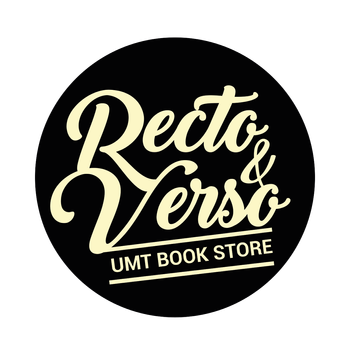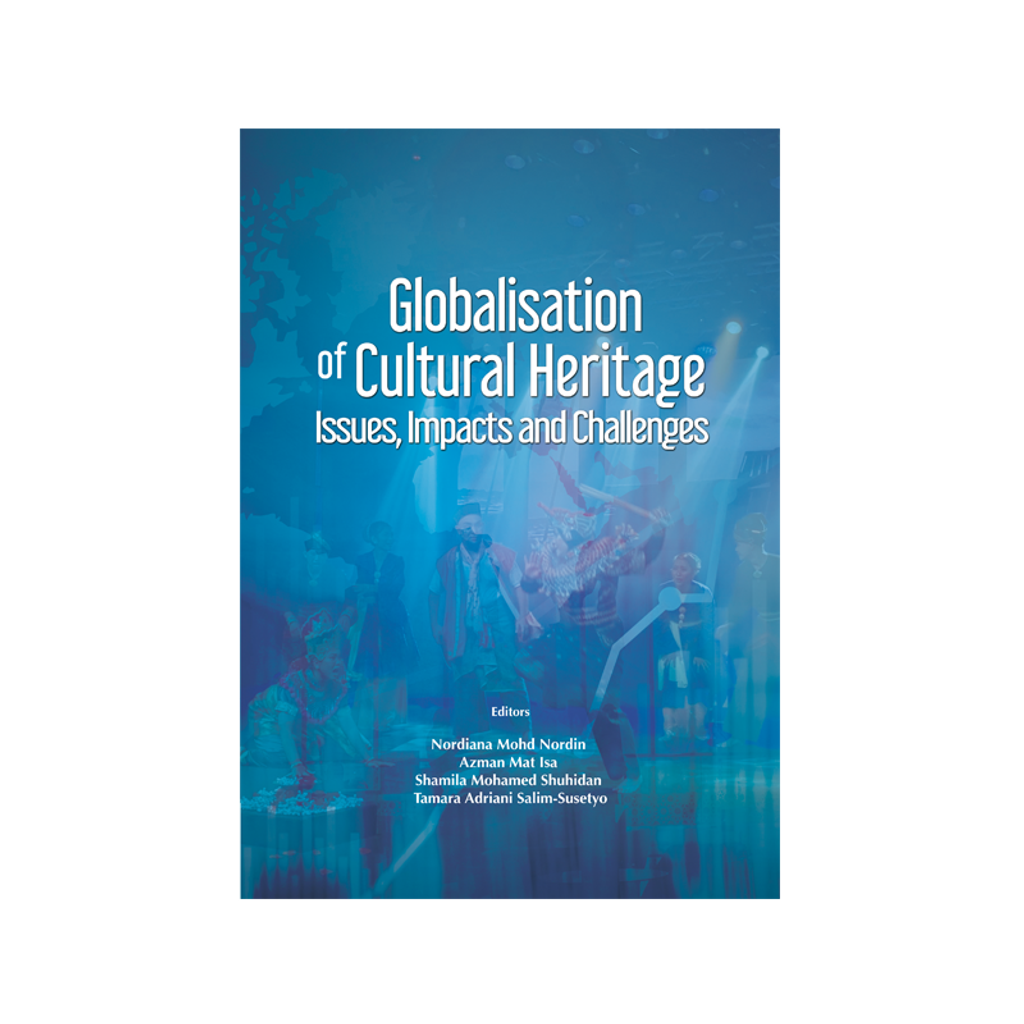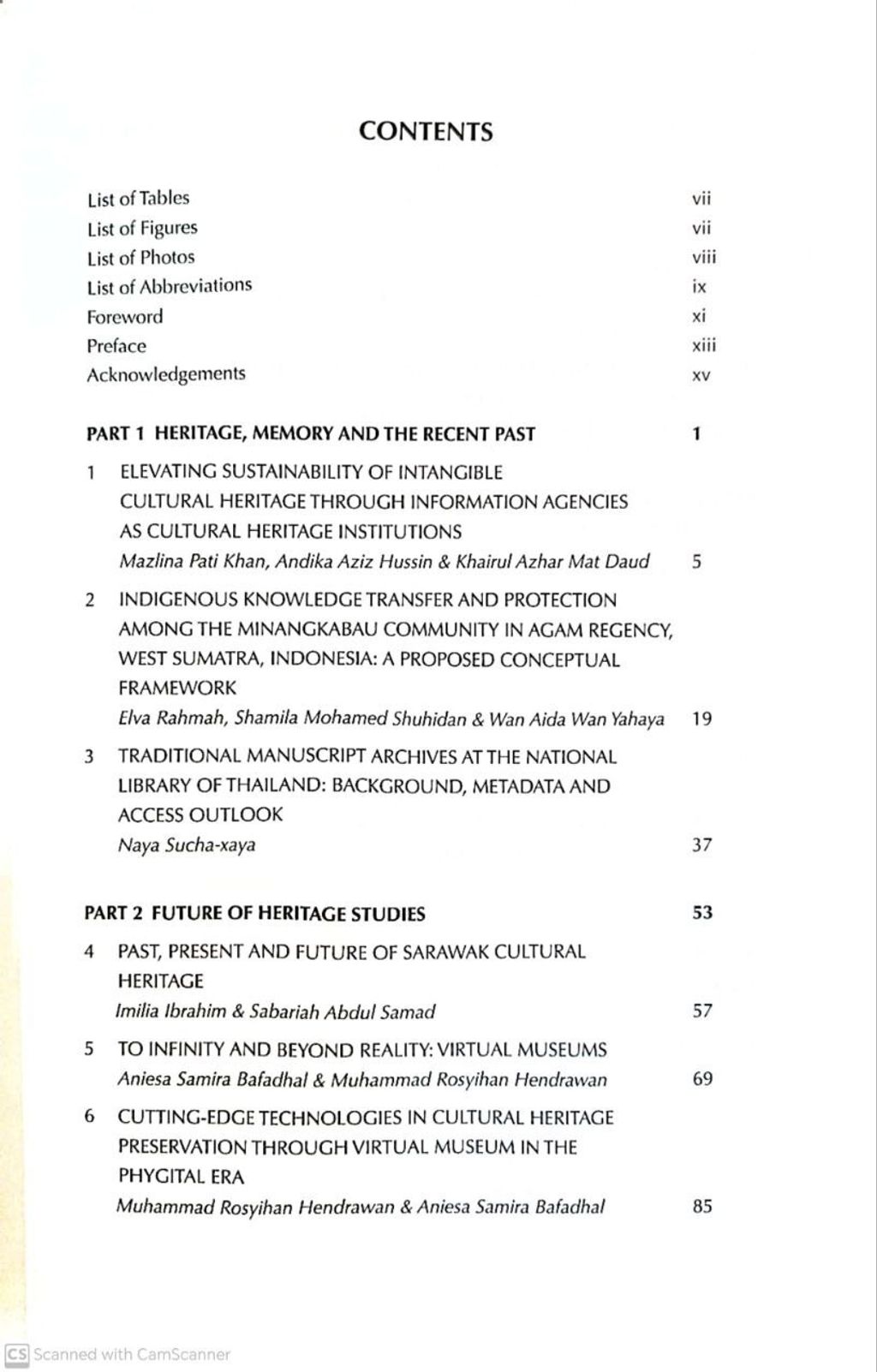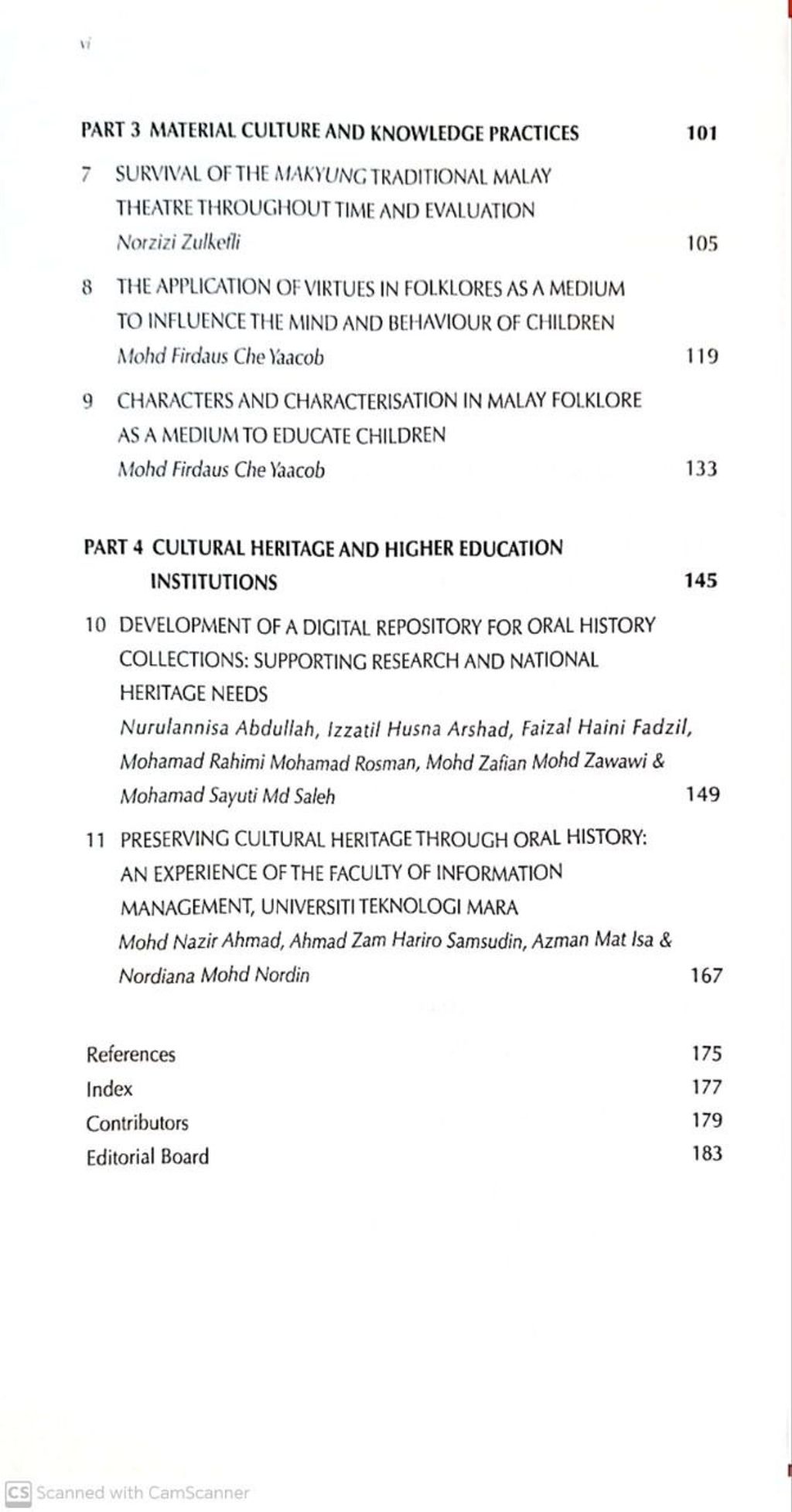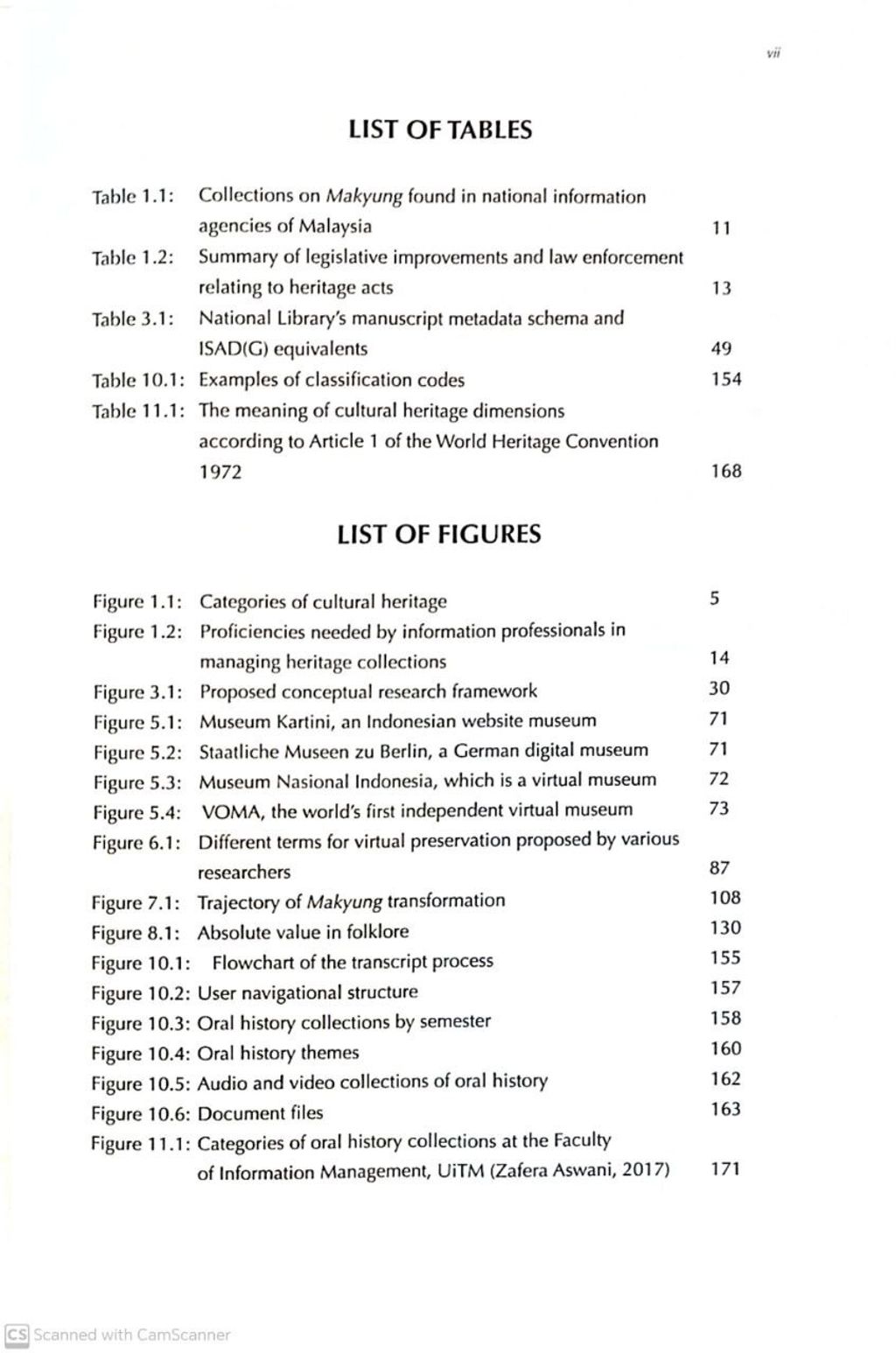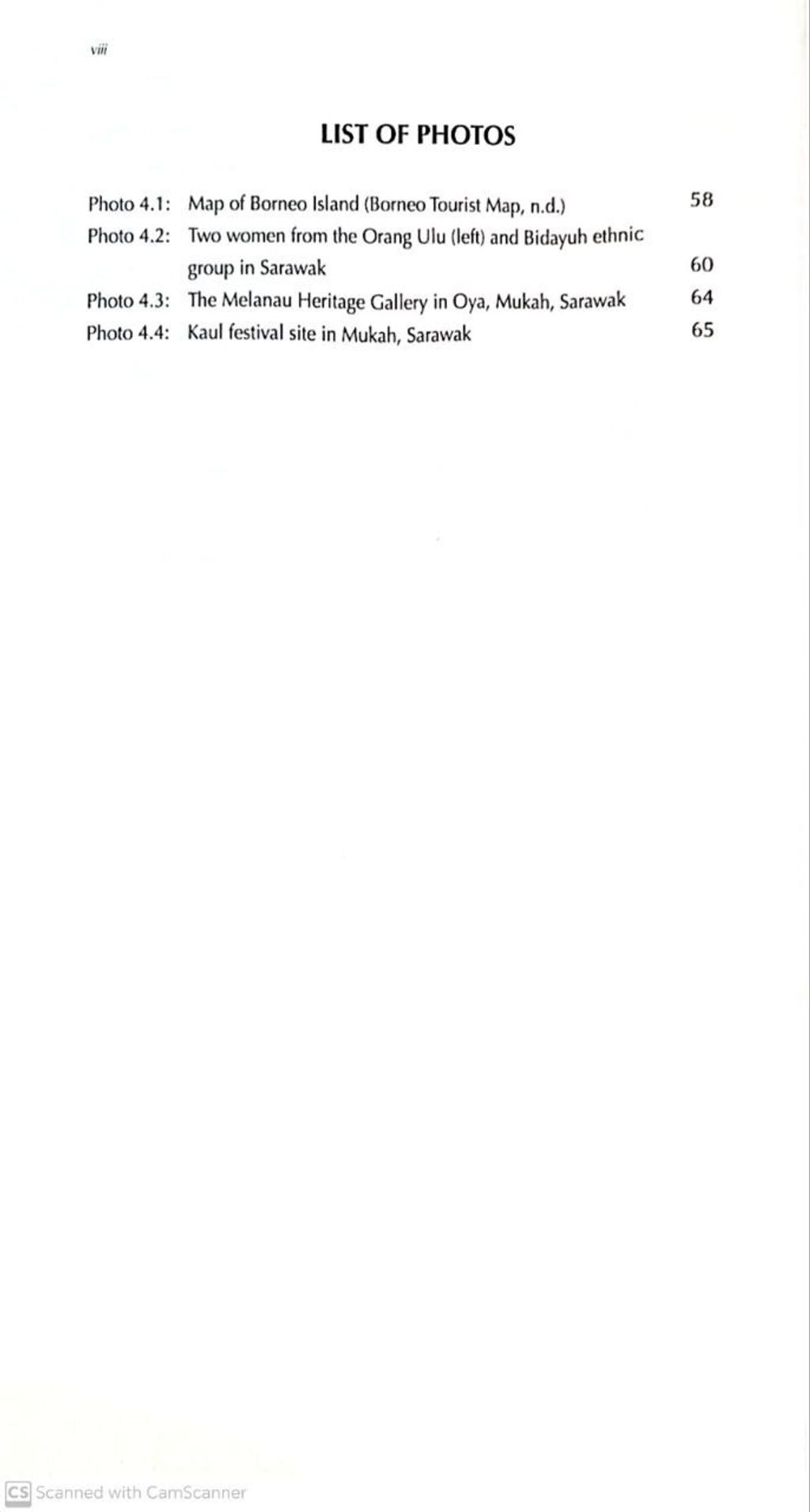Culture is socially acquired and is passed from one generation to descendants. Some are typically published and unpublished texts, images of many types, works of art, artefacts, collectables, historical treasures or similar items kept in cultural institutions. The role and responsibilities of information agencies in safeguarding heritage information for the sustainability of intangible cultural heritage are crucial. Information agencies have a significant role as a heritage education hub, knowledge development centre and cultural heritage repositories. It requires proficiencies such as readability of cultural heritage; experience and knowledge; continuous professional development and relevant academic qualification.
Cultural heritage in Sarawak attained the state government's attention by building cultural galleries in various parts of the state, which is rich of tremendously colourful due to the diversity of ethnicities. Meanwhile, coping with technology changes, cutting edge cultural heritage preservation through the virtual museum in the phygital era enables heritage objects to be revealed via parallel and simultaneous physical and digital worlds. A group of researchers from Malaysia and Indonesia studied indigenous knowledge transfer and protection among the Minangkabau community in Agam District, Indonesia. It led to the development of a conceptual framework of indigenous knowledge transfer. In addition, a study on the archives and manuscripts collections at the National Archives of Thailand discovered a transnational history context between Thailand and Malaysia. It is discovered that understanding materials are central to doing professional information work. There is always room to consider and reinterpret materials from different perspectives and contexts.
Makyung is among one of the earliest existing dance theatres of the Malay people, established in the fourteenth century. It is a combination of performative elements that includes dance, music, acting and ritual. Meanwhile, folklore can shape the morals, behaviour, and thinking of children. It can be used as entertainment especially during the old days. The character and characterisation in folklores act as a medium of education for children. Several values can be imbued to children, such as brave, responsible, cleanliness, patience, compassion, and gratitude. Higher education institution, such as the Faculty of Information Management plays a significant role in preserving cultural heritage by offering an oral history course and developing oral history collections which contain intangible cultural heritage.
Editors: Nordiana Mohd Nordin, Azman Mat Isa, Shamila Mohamed Shuhidan, Tamara Adriani Salim-Susetyo
Size (inch): 7 x 10 x 0.5
Pages: 183
Weight (book only): 400g
ISBN: 9789672939856
Year: 2021
Finishing: Softcover, perfect binding
We ship worldwide! Reach us via https://www.rectoverso.my/apps/contact-form-plus. We will quote the best shipping rate to your doorstep.
